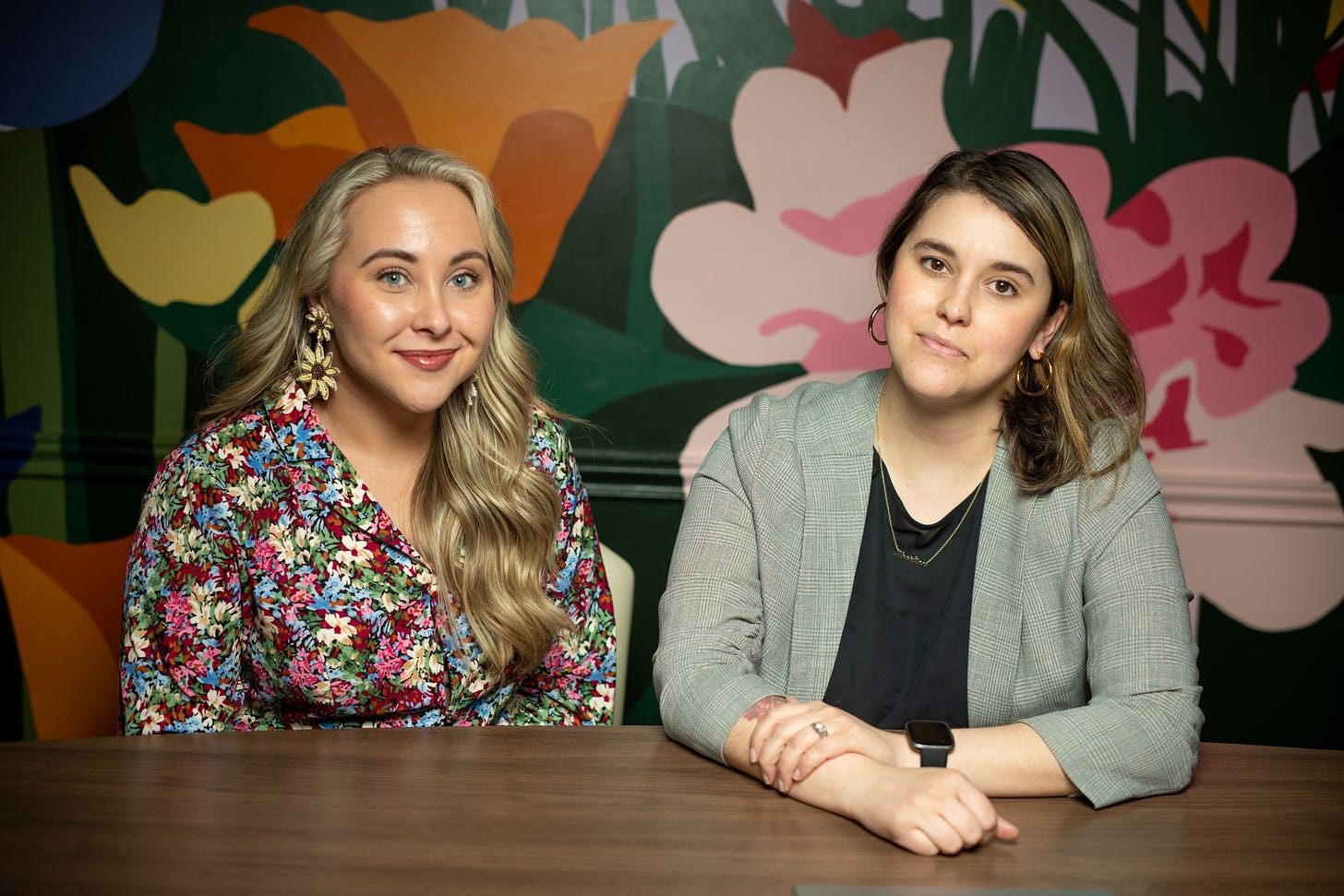Amid Statewide Abortion Ban, Women’s Health Center Expands Access
As West Virginia lawmakers passed an abortion ban aimed at “closing the only clinic in the state,” they stirred up an army of supporters, ushering in an increase in financial support.

Mar. 25, 2022 • Written by Kyle Vass
Sitting in front of a mural that greets patients at the Women’s Health Center of West Virginia, Development Director Ramsie Monk shares a favorite quote from her boss, Executive Director Katie Quiñonez. “Roe was never enough. It fell and we’re still standing.”
To say the Women’s Health Center is still standing is an understatement. Since the U.S. Supreme Court overturned Roe v. Wade, effectively removing any federal protections that existed for access to abortion care, the clinic has grown faster than ever.
The first weekend after the Supreme Court’s decision in Dobbs v. Jackson Women’s Health Organization – the decision that stripped away the federal right to abortion - the clinic more than doubled its fund for people who need help paying for abortion. Now, they’re opening a second clinic in Cresaptown, Maryland – a five-minute drive from the West Virginia border.
“You can see the border from our clinic,” Quiñonez said. Adding a location in Maryland means they will be able to provide abortion care with virtually no state-level restrictions, Monk added. When the West Virginia Legislature voted to ban abortion some two months after Roe fell, its goal was “to shut down the abortion clinic,” as one state senator described during a floor session. Instead, West Virginia politicians inadvertently helped the clinic grow into something they can no longer control.
It’s been a deeply difficult eight months. Quiñonez recalls being in her office when she learned about the Dobbs decision minutes before it hit the news. “They update the decision [on the Supreme Court website] in ten-minute intervals. And when I clicked refresh and saw Dobbs, I said ‘Fuck,’ closed my door, and immediately texted our lawyer at the ACLU Reproductive Freedom Project.”
The attorney advised any scheduled abortion appointments be canceled. Quiñonez promptly called all the managers into her office, where several broke down crying. “I naïvely thought after we have a moment to recover, everyone will get back to their battle stations. And obviously that was completely unrealistic because this work is sacred to us,” said Quiñonez, adding that her first experience with the clinic was receiving abortion care there for herself.
She, alongside the office manager and chief nurse, decided to personally call people to tell them their appointments had to be canceled and direct them to their nearest clinic – a heart-wrenching experience for the administrator who otherwise has little-to-no direct contact with patients.
“Some patients that were like, ‘Oh, you can help me pay for my care?’ They were surprisingly resilient,” Quiñonez recalled. “But then we also had patients that broke down crying or had to pull their car over because they were driving when they got the call.”
One patient, she said, was at school when she got the call. “She told me, ‘Can I give you a call back when I get home and I’m with my mom? I don’t know what’s going on right now,’” Quiñonez said. Thanks to a lawsuit filed by the ACLU of West Virginia, the Women’s Health Center was able to provide abortion access for several weeks after the fall of Roe. “We did the impossible,” Monk said.
“We provided 100 abortions between Roe being overturned and September 13,” referring to the day the Legislature passed its near-total ban on abortion. But even with access stripped, the Women’s Health Center has been able to use its access to a national network of providers to help people afford the cost of leaving the state to seek care. Monk said these collaborations with various groups have meant that access to abortion for West Virginians was never fully cut off by lawmakers.
So, while West Virginia’s ban has complicated care for many, the care is still happening and has never been more well-funded. But codifying abortion as illegal still comes with great consequences; there is a chilling effect from the resulting stigma, and it also undermines faith in the medical community at large with respect to managing pregnancy.
Sarah Hendricks, who is in her second trimester of pregnancy, lives in a West Virginia city about an hour away from Pittsburgh and makes the drive every time she sees a doctor about her pregnancy. Hendricks – a pseudonym she requested out of fear of retaliation for publicly opposing the state’s abortion ban – said, “I found out I was pregnant right around the same time the abortion ban was announced.”
She and her husband moved to West Virginia with the hopes of starting a family. But, the shifting political landscape took away her faith in the kind of pregnancy care available in the state. In recalling a letter Hendricks wrote from the time, she wrote, “I should be celebrating. But, instead I’m terrified and I’ve been in tears because I’m so afraid I won’t get decent medical care here. Now, instead of looking forward to our future, my husband and I are talking about when we should get out of West Virginia.”



